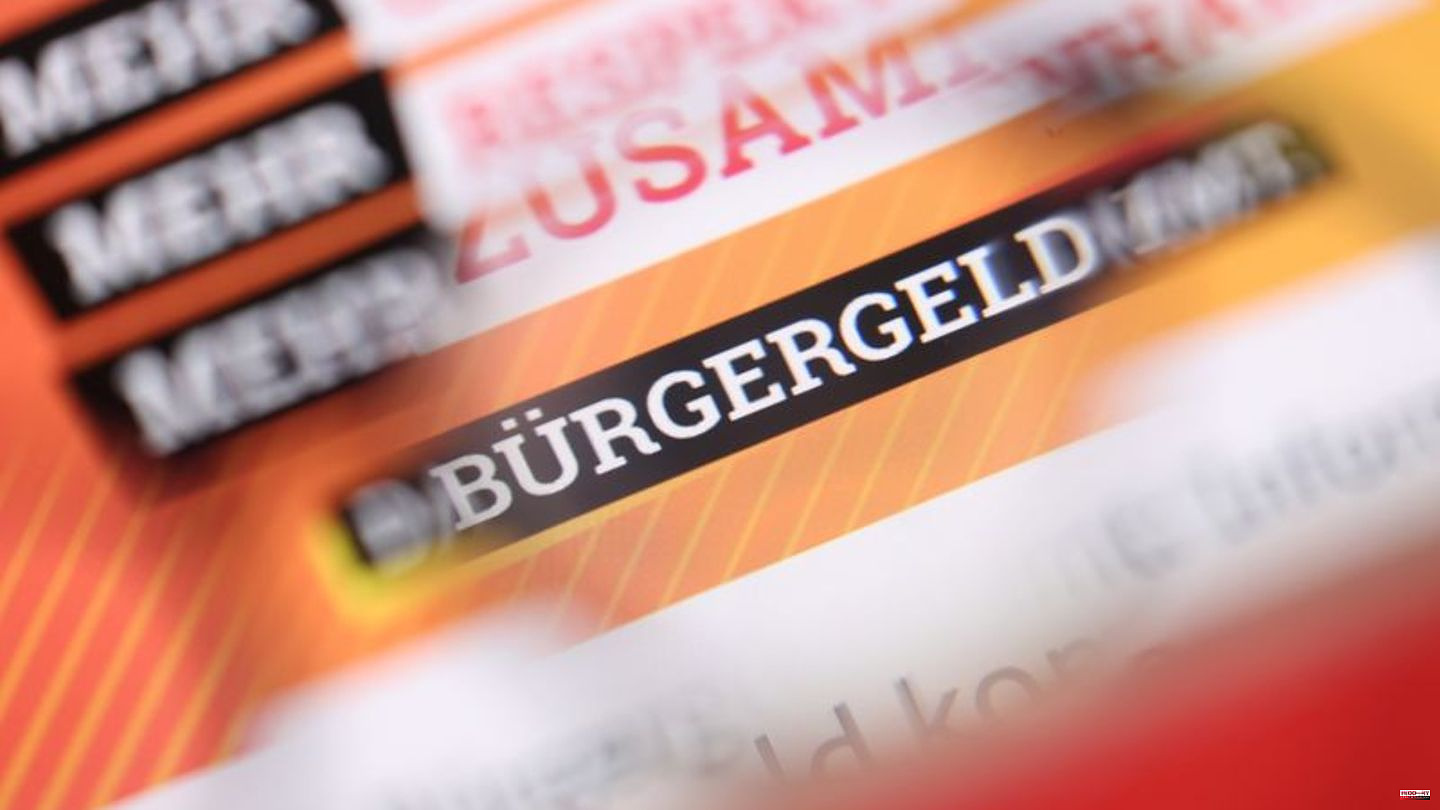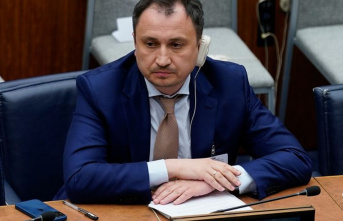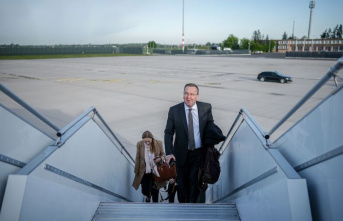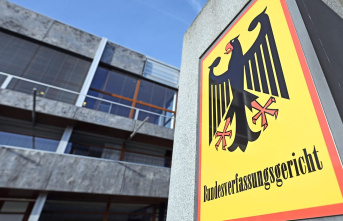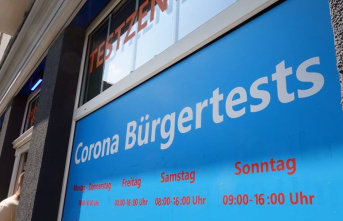The decisive breakthrough has been achieved in the dispute between the government factions and the Union over the planned citizen income reform. After difficult talks, both sides reached compromises on the central issues, as they announced in Berlin on Tuesday. Now, this Wednesday, the mediation committee set up by the Bundestag and Bundesrat for the controversial bill is to deal with the compromise that has been reached.
Federal Labor Minister Hubertus Heil (SPD) submitted the corresponding proposal for a resolution to the committee on Tuesday. "We will come to an agreement," said Federal Chancellor Olaf Scholz (SPD) on Tuesday with a view to the upcoming meeting in the mediation committee.
Planned to start in January
The citizens’ allowance planned by the traffic light government is to replace the current Hartz IV benefits on January 1, 2023. In the past few weeks, the Union had opposed central points of the project. Countries in which the CDU and CSU are in government blocked the reform in the Bundesrat on November 14, thus ensuring that a mediation committee had to be called. The preliminary agreement that has now been reached provides for concessions to the Union on key points.
Union faction leader Friedrich Merz explained that he now expects the Union-governed countries to agree to the mediation committee. "I have no doubts about that," said the CDU chairman on Tuesday when asked a question.
According to the compromise, there should be more sanctions for recipients than originally planned, as requested by the Union. The traffic light had provided for a "confidence period" of six months, during which sanctions should only be possible under certain conditions. This trust time is now completely deleted. Instead, benefit reductions should take effect from the start if, for example, the unemployed do not apply for a job even though this was agreed with the job center.
Dispute over spare assets settled
In addition, the CDU and CSU had demanded that those affected be allowed to keep less of their own assets if they received the state benefit. The traffic light had planned a saving of 60,000 euros. The compromise now provides for an amount of 40,000 euros for the first person in a benefit community and 15,000 euros for each additional person. There is a waiting period of one year - the traffic light had wanted two years. During this time, benefit recipients do not have to use up the savings. Retirement provision is completely exempt from this and protected.
The central concern of the traffic light factions should also remain in place: in the future, the emphasis should above all be on qualification and permanent employment, instead of placing benefit recipients in short-term unskilled jobs - as has often been the case up to now. As planned, the standard rates for single parents are also to increase by more than 50 euros to 502 euros as of January 1, 2023.
On Tuesday, Chancellor Olaf Scholz (SPD) held out the prospect of a "very big social reform" that should have an effect for decades, as he emphasized at an "economic summit" of the "Süddeutsche Zeitung" in Berlin. Representatives of the traffic light groups also expressed their overall satisfaction with the compromise. FDP deputy head Johannes Vogel emphasized that in the future - as originally planned - there will be even more attractive additional income rules for benefit recipients. His party had attached great importance to this from the start. According to the previous draft, those who earn between 520 and 1000 euros will be able to keep more of their income in the future. In the future, it should be more worthwhile for those affected to "work their way out of the need for help step by step," emphasized Vogel.
Positive words despite regret
Green parliamentary group leader Britta Haßelmann regretted the loss of the period of trust, but found fundamentally positive words about the compromise. The Confederation of German Trade Unions (DGB) and the employer side also reacted with satisfaction. "Significant improvements in citizen income were saved by the traffic light in the negotiations," said DGB board member Anja Piel. Employer President Rainer Dulger praised the fact that "the tried-and-tested principle of promoting and challenging" will be retained.
Harsh criticism, on the other hand, came from the left and social organizations, which, among other things, reject the tightened sanctions regulations. With the abolition of the period of trust, "the heart of the reform was taken away," said Michaela Engelmeier, chairwoman of the Social Association Germany, of the "Neue Osnabrücker Zeitung".
The resolutions on citizen income have not yet been finally approved. As planned, the final compromise will be finalized this Wednesday in the mediation committee of the Bundestag and Bundesrat. The meeting is scheduled for 7 p.m. and should now result in a result faster than initially expected. Parliament and the state chamber are then supposed to pass the Citizens' Allowance Act by Friday.
1st meeting of the Mediation Committee Bundestag resolution on citizen income Federal Ministry of Labor on citizen income recipients - Statistics Article 77 of the Basic Law How the Mediation Committee works

